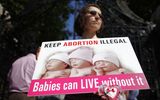Universities should have kindergartens to facilitate students with children. This is no joke, says demography expert Gudrun Kugler, since one of the main problems in our world is that people wait too long before motherhood.

Featured
All articles with this tag
Ageing rapidly
Europe is facing a serious demographic crisis. Birth rates are at historic lows, and the population is ageing rapidly. In 2023, the European Union saw its largest drop in births since 1961, with only 3.67 million babies born. The average fertility rate is now 1.38 children per woman—well below the 2.1 needed to maintain population levels.
Living longer
At the same time, people are living longer. By 2050, nearly 30 per cent of the EU's population will be over 65 years old. This shift means fewer workers are supporting more retirees, putting pressure on pension systems and healthcare services.
Some countries, like France, Italy, and Spain, are seeing their populations shrink. Without enough young people, economies may struggle with labour shortages and slower growth.
Immigration has helped offset some of these challenges, but it's not a complete solution. Experts suggest that Europe needs to invest in family-friendly policies, encourage higher birth rates, and integrate immigrants effectively into the workforce.
Spiritual questions
For Christians, this demographic shift also raises spiritual questions. Churches are usual centres of family life. In most churches, families are larger than average.
As societies age and change, the church has an opportunity to offer hope and community to those seeking meaning in uncertain times.
This tag page explores how Europe's demographic changes are affecting families, economies, and faith communities across the continent.









